Craft beer lovers, unite! Indian brand Simba Brewery is selling its Wit and Stout at a pub near you
In three years, Delhi-based Simba has expanded to popular destinations like Bengaluru, Goa, and NCR, and it will soon enter Mumbai.
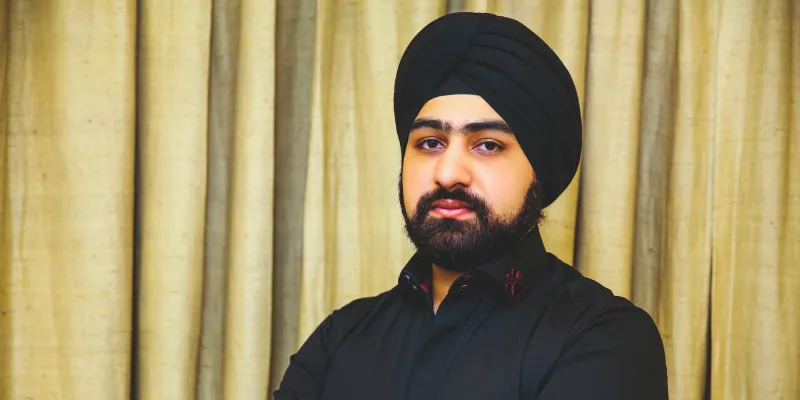
India is getting serious about craft beer.
Craft beer, usually made by smaller, local players, has been rising in popularity for over a decade in India’s metro cities. For seasoned patrons, spending Saturdays or Sundays at Doolally and Independence Brewing Company in Pune, or Toit and Arbor Brewing Company in Bengaluru is the new normal.
But it is difficult for somebody in Bengaluru to enjoy a mug of Pune-brewed Doolally beer as craft beer is rarely bottled and sold outside the city where the brewery is located. However, beer lovers across India can drink Simba craft beer.
Simba is the brainchild of serial entrepreneur Prabhtej Singh Bhatia (27), who set up the brewery in Durg, Chhattisgarh. He has also founded Kite, a fintech startup, and acquired a fishery.
“Simba is the result of rigorous research on supreme quality beer. Our craft beer undergoes the challenging process of using fresh water from a nearby river. Other beer companies usually use underground water,” says Prabhtej Singh Bhatia, Founder and CEO, Simba Brewery.
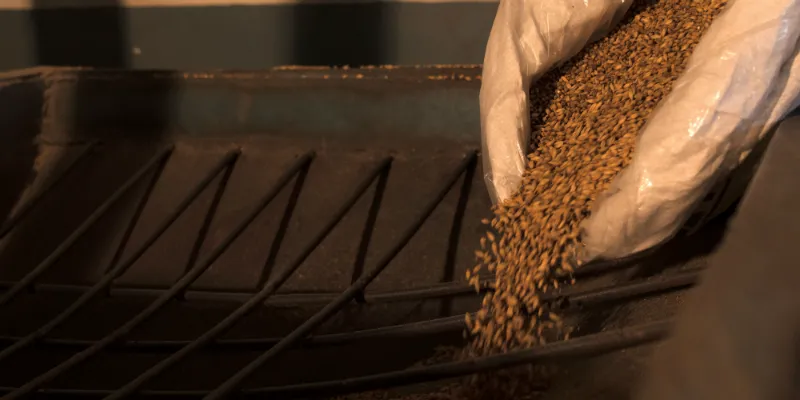
Simba's roasted malts
When Simba was set up in 2015, it was the only craft brewery in India whose beer was made for sale across markets. Bira, another popular name in the Indian craft beer market, was importing its beer from Belgium and bottling it in India. It soon followed suit and set up its own brewing facilities in India.
The essence of Simba
“We have spent months searching for the finest malts and hops, creating experimental batches to perfect the flavor, and throw out all conventional wisdom. Simba also uses real orange peels from the farms in Europe along with roasted barley and oats to get the rich flavours in our Simba Wit beer. Further, our Stout has a hint of coffee and dark chocolate,” he adds.
In three years, Simba has expanded to popular destinations like Bengaluru, Goa, and NCR, and it will soon enter Mumbai. Despite the expansion, Simba stays true to craft beer production by making beer in small batches instead of producing it in bulk.
“This way, we can give enough attention and focus to the recipe of each beer. This process also allows us to keep better control over the quality of the drink without compromising on the taste,” he adds.
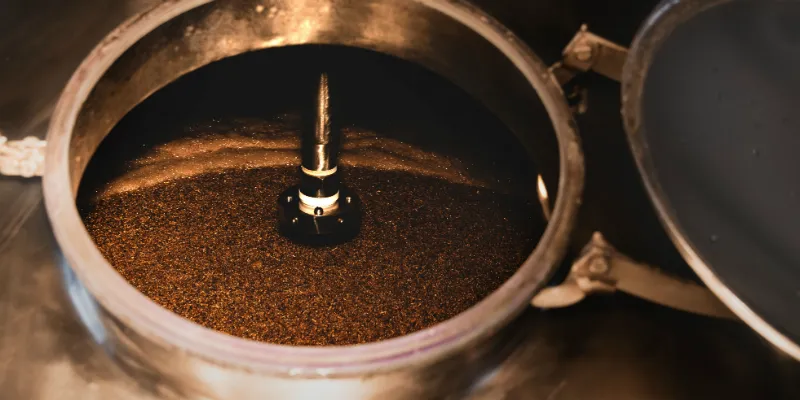
Simba's Stout mash
And beer lovers are showing their love for the brand. Under Prabhtej’s leadership, the business grew 150 percent in 2017-18. He says it is on track to achieve a turnover of Rs 150 crore in the current financial year, which is a growth of 100 percent from the previous financial year.
In an exclusive interaction with SMBStory, Prabhtej narrates how he started Simba and why is it going to be the next big thing in the craft beer market.
SMBStory: How did you get interested in craft beer?
Prabhtej Singh Bhatia: I have always loved to explore beers native to a particular region in India and abroad. I never miss a chance to visit a local brewery anywhere in the world. So, I always had a penchant for beers and wanted to create my own beer from scratch.
Further, my family has been in the retail business of liquor for a long time. Thus, I had a good idea about the industry and distribution. Still, starting my own craft beer was considered a risky move in the craft brewing circles in India.
SMBS: Why did you want to start your own craft beer venture?
PBS: When I was studying in the UK, I saw a huge beer market with different styles of beer. These were missing in India. Here, the only difference between the beers was the labels. Since every beer was providing the same style and similar quality, I felt that overall per capita consumption was also fairly low.
The Eureka moment for me was realising the huge potential in newer styles like the Wit and Stout. I saw that the Indian consumer was ready to experiment with something different and fresh. Thus, I wanted to have my own manufacturing unit and provide high quality finely crafted brews.
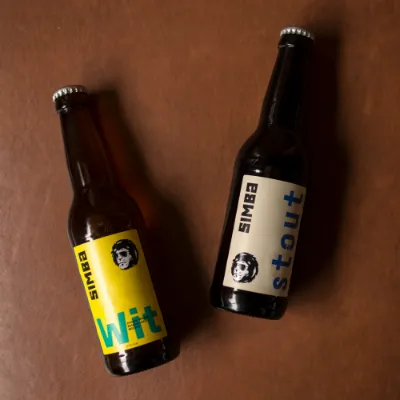
Simba's Wit and Stout craft beer
SMBS: How did you execute your craft beer idea?
PBS: I decided to start my own brand to make craft beers and applied for the brewery licence. In 2012, I got into the construction of the brewery by setting up the plant in Chhattisgarh. Getting into manufacturing was a new experience for me, so for two years, I did contract manufacturing for SABMiller.
Running a brewery for a global brand gave me the required experience as it taught me the different nuances of the industry. I learned the parameters to be considered for delivering quality consistently. I gradually mastered the art. In 2016, I completely exited the distribution and retail business and officially launched my own brand by putting in huge investments by setting up the brewery only for Simba.
It was a challenge to bring together the old traditional methods to create something new and fresh for the market. My brother Ishwaraj joining me as a co-founder after he returned from London was a huge boost to us.
SMBS: How did you fund your idea?
PBS: Simba is a bootstrapped company that received funding from banks. Initially, we invested Rs 100 crore to set up the brewery and run the business. We want to be here for the long run and do not want to get into the cycle of the timelines, evaluations, and exits. In FMCG, one cannot scale too fast and burn out.
SMBS: How did you decide on the name ‘Simba’?
PBS: Much before I decided to start a brewery, I had my heart set on the name Simba. So we didn’t really go through a naming exercise when we launched it. I loved the name already and it fits perfectly with the authentic and bold brand image we wanted to create for our brewery. The name perfectly embodies this exploratory spirit.
We’re proud to take the Indian craft beer industry in uncharted directions. For example, the Simba Stout is India’s first bottled stout. Entering Goa was another milestone for us, as that was the first national-level market for us, and we’ve received an amazing response here.
Our big breakthrough was our Wit Beer, which has helped us establish a strong hold in the craft beer market. We are also using the trend of social media marketing to promote Simba. We are reaching out to bloggers and influencers as this give us hype in social media.
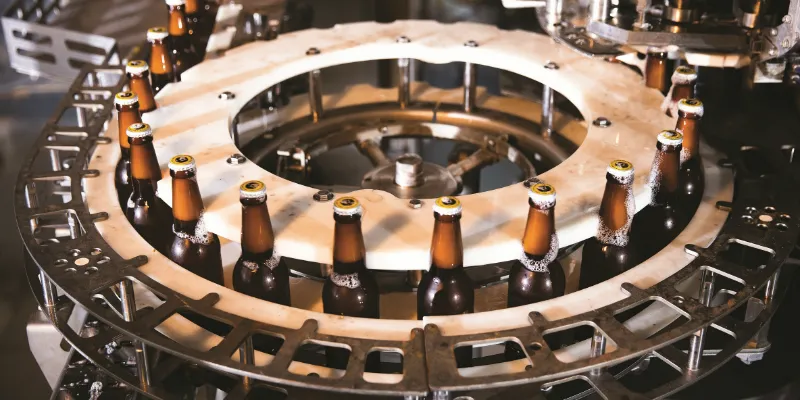
Simba's bottling unit in Durg
SMBS: How has Simba been received by consumers?
PBS: We have received a tremendous response from all who have tried our beer. Since Wit is a classic Belgian wheat beer, it is widely accepted by all. We did not expect our second variant ‘Stout’ to perform so well in the market. It gives us more strength and confidence to launch experimental brews.
Most restaurant owners are loyal to us, and the brand is gaining immense popularity organically. Goa has been a good launchpad and we received positive feedback. Now, we want to expand further and introduce more cities to Simba. We are also expanding our product portfolio by launching new variants and investing in R&D for unique and high quality products.
SMBS: What is the way forward for the craft beer market in India?
PBS: The beer market in India is at a very nascent stage but has the potential to make it big. The craft beer market is going to grow bigger. It is not going to be one brand or the other -this growing market will be big enough for brands to co-exist and grow collectively.
Nowadays, every brewery has its own style of craft beers. This is because beer is a category where we can use different elements and experiment with the flavours. This experiment enables one to completely redefine a category.
ALSO READ: Locally-made Bira is proving +91 can have millennials and connoisseurs hooked







